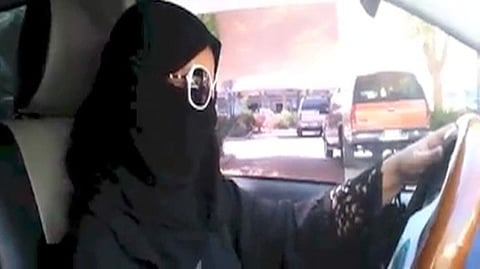Have the Swiss got it all wrong?
Curbs on Saudi women drivers seem to have punched holes in Swiss civil liberties

Switzerland is renowned for many things. It boasts some of the most breathtaking scenery in the world. It produces world-class chocolates and precision tools, famed watches and jewellery that have very little competition elsewhere.
Switzerland is also the leader among nations in key indicators of national performance, which include government transparency, civil liberties, economic competitiveness and human development. So precise and punctual are the Swiss that it is said that one could set his or her watch by the arrival and departure time of their trains. With a population of a little more than eight million and a neutrality stance that has survived World Wars, the Swiss are genuinely admired and envied for their little heaven on earth.
However, a story in the local press there appears to have burst holes akin to the famed Swiss cheese in the invincible aura of Swiss civil liberties. The report that came out earlier this month in a daily stated that the Saudi embassy declared that Saudi women could no longer rent a car or drive in Switzerland. The reason given was that Swiss laws required all drivers to possess permits issued in their own countries.
According to the report, the Saudi ambassador to Switzerland cautioned all Saudi nationals that driving in Switzerland without a licence from the kingdom would be considered a traffic violation. Additionally, Saudis must have a translated copy of their original licence stamped by the embassy, in addition to an international driving licence.
The report also carried the story of one Saudi tourist who claimed that several car rental companies refused to rent him a vehicle as he “did not have his original licence or a copy with a seal from the embassy”. When he inquired at the Saudi consulate in Geneva, he was told that that was indeed the case. He added that consular officials there had told him that this move was being done to prevent travel agencies in Saudi Arabia from issuing driving licences to women, who can then use them freely abroad.
Women are not allowed to drive in Saudi Arabia and thus cannot qualify for a Saudi licence. Many bypass the rule by obtaining an international driving permit and use it all around the world. In the past, travel agencies would comply with their request for a permit if they possessed a driving licence from any country. But with the rule requiring that permits are only issued to nationals with Saudi licences, that effectively bans Saudi women from cruising behind the wheel along Swiss roads. Travel agencies in the kingdom are strictly monitored to ensure that they follow the rules and would be in violation of the law otherwise.
If the published report is accurate, then, according to Swiss rules, a Saudi woman who obtains her driving licence from the UAE, the United Kingdom, the US or elsewhere by passing a rigorous training process and stringent tests in motoring academies will not be able to exercise her rights in not just Saudi Arabia but also in Switzerland of all countries! Have the Swiss got this one right?
Special circumstance
Why such a hurdle for Saudi women getting behind the wheel? Perhaps an earlier incident reflects the feelings in some quarters behind such an ideology. Last month, during a Saudi television talk show, a Saudi historian, Saleh Al Saadoon, was asked about the country’s ban on women driving. He replied, “Women used to ride camels, so one might ask what prevents them from driving cars. There is a difference between riding camels and driving cars and there is a special circumstance in Saudi Arabia that puts women at risk while driving between cities that are far apart. If a woman drives from one city to another and her car breaks down, what will happen?” he asked.
When the host argued that women drive in America, in Europe and in the Arab world, Al Saadoon glibly replied: “They don’t care if they are raped by the roadside, but we do.”
The host was incredulous. “Who told you they don’t care about getting raped by the roadside?”
“It’s not a big deal for them beyond the damage to their morale. In our case, however, the problem is of a social and religious nature,” Al Saadoon flatly responded.
Not willing to let it go, the host countered: “What is rape if not a blow to the morale of a woman? That goes deeper than the social damage.”
“But in our case, it affects the family,” Al Saadoon replied. “Saudi women are driven around by their husbands, sons and brothers,” he said. “Everybody is at their service. They are like queens. A queen without a chauffeur has the honour of being driven around by her husband, brother, son and nephews.”
I am not sure whether every Saudi woman would agree with what the Swiss or the likes of Al Saadoon have come up with regarding their freedom to drive.
Tariq A. Al Maeena is a Saudi socio-political commentator. He lives in Jeddah, Saudi Arabia.
Sign up for the Daily Briefing
Get the latest news and updates straight to your inbox



